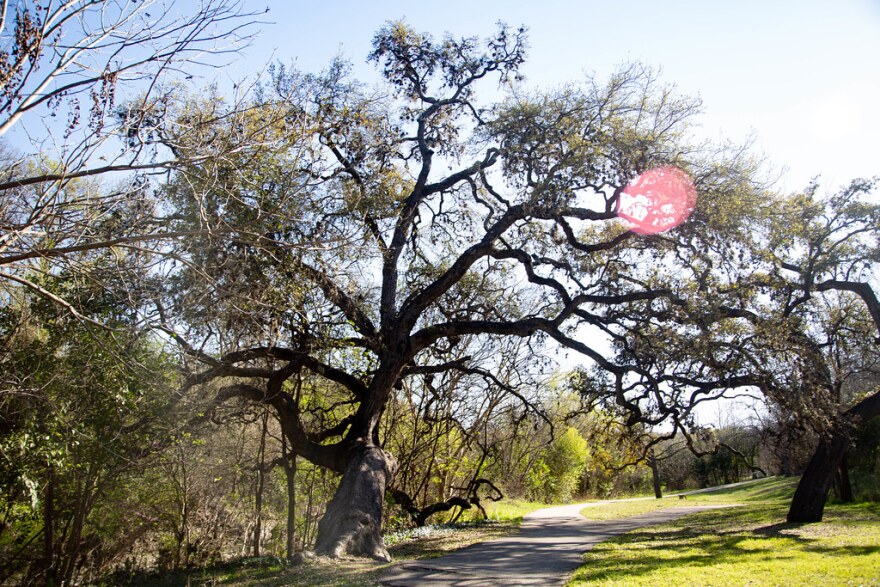
excerpt:
Remnants of history around us
Austin’s Indigenous history is complex and dates back at least 37,000 years,
according to some anthropologists’ estimates. How it takes shape in the
public discourse is often focused through a historical context, which
Circe Sturm, professor of Anthropology and Native American and
Indigenous Studies at UT Austin, finds problematic.
“We have a
state government that doesn’t acknowledge, doesn’t recognize, its own
Indigenous history,” said Sturm, who is a descendant of the federally
recognized Mississippi Band of Choctaw Indians.“When students
study about Indigenous people as part of their Texas history module,
it’s focused on the past and not on the present," she said, "in a way
that there’s a real disconnect between our understanding of our history
and our understanding of our present.”
A brief history lesson
In addition to
the Comanches, the Caddo, Cherokee, Coahuiltecan, Lipan Apache,
Karankawa, Tonkawa and Wichita tribes also claimed Central Texas as part
of their territory. They were incredibly diverse, speaking numerous
languages, adopting multiple beliefs and creation stories — and all
living off this land differently.
Then in the mid-16th century, European settlers first came to the interior of Texas.
They
brought waves of infectious disease — including epidemics of smallpox,
measles and cholera — that had widespread impacts on Texas’ American
Indian population.
Two sedentary tribes in Central Texas, the
Caddo and Wichita, were hit especially hard by disease. Their
livelihoods were dependent on agriculture, which was hard to sustain
when a big part of their population was wiped out. The nomadic tribes,
like the Coahuiltecan, maintained their hunting and gathering lifestyle.
In that sense they may have been more equipped to distance themselves
from outbreaks, but that still didn’t guarantee survival.
So while Austin’s Indigenous history may not be evident with historical
markers, it’s deeply rooted in the city’s landscape. Because after all,
this area once was — and in some ways still is — Indigenous land.






No comments:
Post a Comment
Please leave a comment.